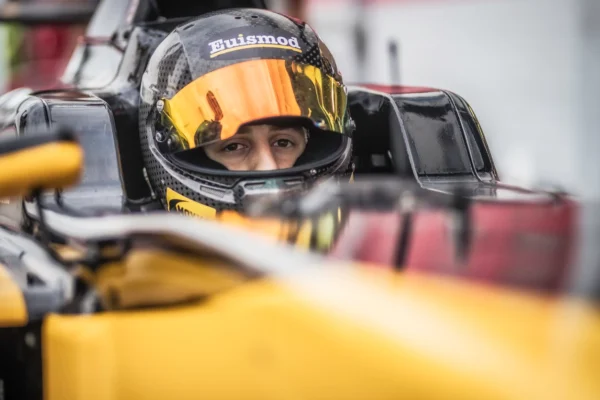

In recent years, the rise of influencers and content creators has transformed how people communicate, entertain and earn a living, with social media platforms evolving from mere networking tools into lucrative business arenas.
Platforms like TikTok, YouTube, Instagram, and Patreon have given millions the ability to monetise their content, lifestyles, and talents—creating a new wave of digital entrepreneurs. But as with any form of income, this new digital economy doesn’t escape the reach of tax authorities.
In the UK, Her Majesty’s Revenue and Customs (HMRC) is increasingly scrutinising the income of content creators, influencers, and digital entrepreneurs to ensure tax compliance.
This article explores the rise of this industry, defines what it means to be a social media influencer or content creator, and delves deep into how their income is taxed. We will also address whether these activities amount to a trade or hobby, how non-cash benefits are taxed, and the various income sources relevant to digital professions.
Who are influencers and content creators?
A social media influencer is someone who has established credibility in a specific industry, has access to a large audience, and can persuade others by virtue of their authenticity and reach. Their primary function is to influence their followers’ opinions and buying behaviour through content on platforms such as Instagram, TikTok, YouTube, and Twitter (now X).
Influencers usually collaborate with brands to promote products or services, receiving compensation either as direct payments, commission on sales, or non-cash perks like free goods, travel, or accommodation.
A content creator refers to individuals who produce and share content across digital platforms. This could include video production, blogging, music, live streaming, adult content, or educational material. Unlike influencers, who focus on audience persuasion, content creators may concentrate more on the value or entertainment of their content, although there is often overlap between the two roles.
Both influencers and content creators often operate as self-employed individuals or sole traders but may also set up limited companies for tax efficiency and protection against personal liability as their earnings grow and opportunities expand.
Hobby or trade? Why does it matter?
The distinction between a hobby and a trade is crucial because only income from trade is taxable under normal income tax rules.
If an activity is merely a hobby, incidental earnings might not be taxable—but once it becomes systematic and commercial, HMRC expects proper tax reporting and compliance.
HMRC and UK tax law use the “badges of trade” to determine whether an activity constitutes trading. Some of the key indicators include:
- Profit motive: Is the individual aiming to make a profit?
- Frequency: Are the activities carried out regularly?
- Organisation: Is there a structure or system in place?
- Commerciality: Are business practices followed, such as invoicing, branding, advertising?
- Adaptation of content: Is the content designed for monetisation?
For example, a TikTok user posting dance videos for fun may not be trading. But if they begin receiving gifts, sponsorship deals, and using affiliate links, this is likely considered a trade.
So, when does it become taxable? HMRC states that income must be declared as soon as it becomes regular or substantial—even if it started as a hobby. Whether you’re paid in cash, goods, or services, it counts.
Income sources for influencers and creators
Digital creators often have multiple income streams, both direct and indirect. Some common sources include:
- Ad revenue (e.g. TikTok Creator Fund, YouTube AdSense)
- Sponsored content (paid posts, stories, or videos)
- Affiliate marketing (earning a commission on product referrals)
- Merchandise sales
- Subscription platforms (e.g. Patreon)
- Fan donations or tips
- Licensing content (selling rights to content)
- Public appearances, live shows, or online webinars.
Let’s explore two platforms in detail, TikTok and Patreon:
TikTok creators can earn income through:
- TikTok Creator Fund: Paid based on video performance (views, engagement)
- Live gifts and tips: Fans send gifts during live streams which creators can convert into cash
- Brand partnerships: Businesses pay for shoutouts and product placements
- Affiliate links: Earnings from driving traffic to e-commerce platforms.
Patreon is a subscription-based platform which allows creators to share videos, podcasts, writing, art, music and more with their subscribers. They are then able to monetise this by:
- Subscription revenue: Fans pay to access exclusive content with multiple membership tiers available, at varying monthly fees
- Digital products: Creators can sell anything from music and videos to 3D print files or exclusive pieces of art
- Fan donations: Fans may make one off donations in addition to their monthly subscription.
Taxation in the UK: Self-employment and trading income
Most influencers and content creators are self-employed. If they earn more than £1,000 per year from self-employment, they must register with HMRC and file a self-assessment tax return.
Income is taxed under income tax rules, and they may also be liable for Class 2 and Class 4 National Insurance Contributions (NICs) if profits exceed thresholds.
Just like traditional businesses, creators can deduct allowable expenses:
- Equipment (cameras, lighting)
- Internet and phone bills (apportioned)
- Software subscriptions
- Travel and accommodation (if work-related)
- Marketing and advertising
- Accountancy fees.
If turnover exceeds £90,000 (the current VAT threshold as of 2024/25), creators must register for VAT. Some creators may also choose voluntary VAT registration for reclaiming input tax on purchases.
Non-cash benefits: How are they taxed?
Non-cash rewards, often called “payments in kind”, are common in influencer marketing. Examples include:
- Free products (clothing, tech)
- Gifted services (spa treatments, flights, hotel stays)
- Exclusive event invitations (with hospitality).
From a tax perspective, these non-cash benefits are treated as income if they are given in exchange for a service, such as:
- A product review
- A social media post
- Public endorsements.
HMRC considers the fair market value of the gift as taxable income. For example, if an influencer is given a designer handbag worth £1,000 in exchange for a post, that £1,000 is taxable.
These gifts should be declared as part of gross income on the tax return. Failure to do so may result in penalties for underreporting.
Are content creators businesses?
Increasingly, successful creators are setting up limited companies to manage their affairs. The reasons for this include:
- Tax efficiency: Corporation tax (19%-25%) can be lower than higher-rate income tax
- Professionalism: Brands may prefer working with incorporated entities
- Liability protection: A company structure separates personal and business assets.
However, setting up a company also comes with compliance obligations—filing annual accounts, corporation tax returns, and PAYE if paying oneself via salary.
The digital creator economy is no longer a fringe phenomenon—it’s mainstream, powerful, and lucrative. However, with that growth comes a responsibility to adhere to financial and tax regulations.
UK influencers and content creators—whether dancers on TikTok or fitness coaches on YouTube—must treat their operations as businesses once they cross the threshold of casual hobby into systematic, monetised trade.
Proper record-keeping, understanding of taxable income (including gifts), and proactive engagement with tax professionals are not just recommended—they’re essential. As HMRC’s focus sharpens, the message is clear: if you’re making money online, it’s not just a digital gig—it’s a taxable trade.










